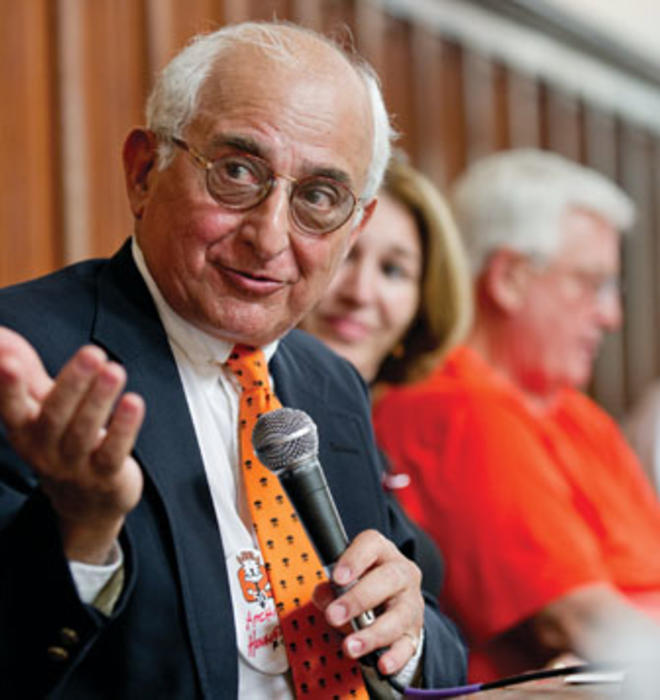
A break from the party to contemplate war
Members of the Class of 1962 took a break from Reunions celebrations to reflect on how the Vietnam War — over for 37 years — had changed their lives. It was one of three discussions among veterans of different wars: The Class of 1997 hosted a discussion with veterans of World War II, and ROTC alumni welcomed veterans of the conflicts in Iraq and Afghanistan.
Audience members recalled peers who became addicted to heroin while in Vietnam, expressing anger at a war perceived as pointless and questioning the political decisions of the era. Several reflected on the period’s antiwar movement.
“We knew damn well that we shouldn’t have been there, but we did what we could while we were there,” said Archie Hovanesian Jr. ’62. His classmate Tony Abbott said, “My feeling is that we had an obligation to go in and do what we did. My biggest concern is the Vietnamese we worked with, and how we left them high and dry and abandoned them.”
About 150 alumni attended the World War II panel, as five members of classes from 1942 through 1946 offered anecdotes from their time as navigators, pilots, and infantrymen. Stories ranged from the liberation of a concentration camp to a champagne-fueled victory celebration.
The veterans emotionally recalled the violence they had witnessed. “A rifle tears a man apart. You’re part man and you’re part not,” said Charlie Crandall ’42. “I said, ‘Dear God, get me straight on. I don’t want any of this crap, hanging around half-dead.’”
Two alumni who fought at Iwo Jima shared one of the most moving moments of the entire war: spotting the American flag in the distance. “When we saw that twinkle of color, about a long par-4 away from us, the mountain shrunk, like that. It was the highlight of the whole campaign,” remembered Smokey Williams ’42.
Veterans of Iraq and Afghanistan noted what war had left undone. “We’ve gotten very, very good at suppressing violence” in those countries, said Colin Jackson ’92, a former armor and cavalry officer who is now a professor at the U.S. Naval War College. “Making it stick in political terms is the hard part.”






No responses yet